Young people urged to claim ‘forgotten’ savings pot cash
Thousands of young people are being urged to claim their ‘forgotten’ savings pots.
New figures have revealed almost 430,000 18-21 year olds have an unclaimed Child Trust Fund, worth an average of £2,000.
The scheme, which was introduced by New Labour in 2002, granted every child a long-term tax-free savings account.
The accounts were set up for every child born after September 1, 2002, with the government contributing an initial deposit of at least £250. Funds can be withdrawn once the account matures when the child turns 18.
The scheme was closed by the coalition government in January 2, 2011, and a recent student survey, conducted by university and college admission organisation UCAS, revealed approximately 430,000 people between 18 to 21-years-old have unclaimed funds in their account.
Now HM Revenue and Customs (HMRC) is urging them to act and claim their cash.
A recent survey, conducted by UCAS, asked first and second year university students about Child Trust Funds and the results showed that they were most interested to know how much money was in their account (43 per cent) and how to claim it (32 per cent).
The survey also revealed that 60 per cent of students got their information about Child Trust Funds from their parents.
Young adults and parents can search on GOV.UK to find out where their Child Trust Fund account is held.
Angela MacDonald, HMRC’s second permanent secretary and deputy chief executive, said: “Many 18-21 year olds are starting out in first jobs or apprenticeships, starting university or moving into their first home and their Child Trust Fund is a pot of money with their name on.
“I would encourage young people to use the online tool to track it down or, for parents of teenagers, to speak to them to ensure they’re aware of their Child Trust Fund. It could make a real difference to their future plans.”
There are currently 5.3 million open Child Trust Fund accounts. Young people aged 16 or over can take control of their own Child Trust Fund, although the funds can only be withdrawn once they turn 18.
More than 500,000 matured Child Trust Fund accounts have been claimed or transferred into an ISA since the oldest children on the scheme turned 18 in September 2020.
Families can continue to pay up to £9,000 a year tax-free into a Child Trust Fund until the account matures. The money stays in the account until the child withdraws or reinvests it into another account.
Sharon Davies, chief executive of financial education charity Young Enterprise, said: “We would encourage all young people to investigate if they have money which is unclaimed in a Child Trust Fund and to use it wisely.
“The investment could be placed into an adult ISA or put towards driving lessons, education or starting a business.
“The money in a Child Trust Fund has the potential to be life changing and the lack of knowledge about them shows the importance of financial education and financial planning from a young age.”
• To discuss any issues raised by this article please contact me on 01772 430000

